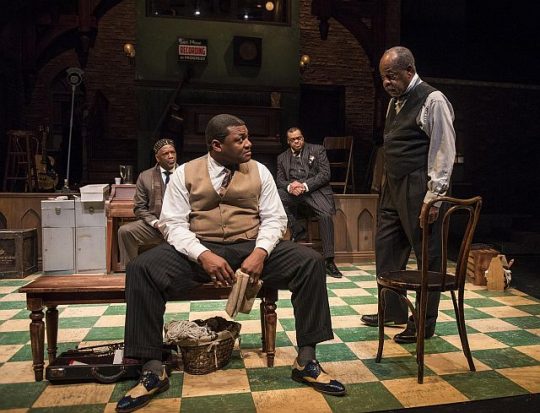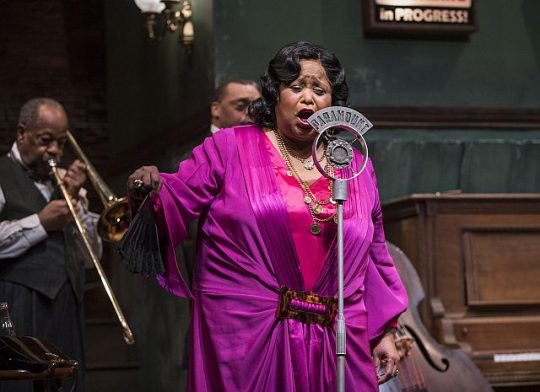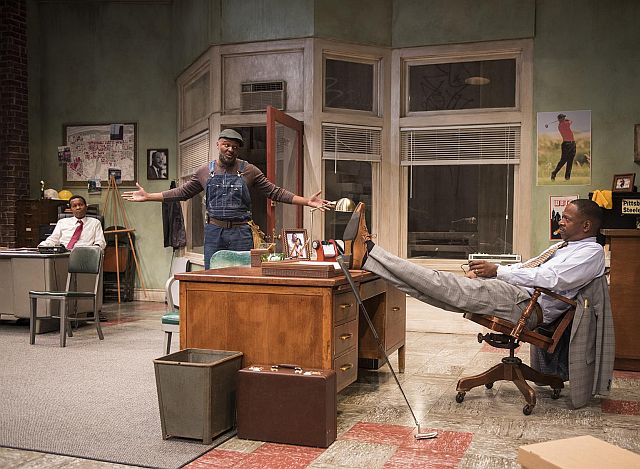
4 stars
To see August Wilson’s plays is to look through a window on the life and times of black Americans, to feel their frustrations, challenges and desires, not just in one period, but in 10 decades of the 20th century. To witness actors tell those stories is to hear Wilson’s ear for the cadence and poetry of language.
In “Ma Rainey’s Black Bottom,” now at Writers theatre through March 17, 2019, we visit a Chicago of the1920’s when white record producers were turning to black music they called “race music” because it sold well.
The play is the only one of Wilson’s “Century Cycle” to be set in Chicago. The others, such as “Radio Golf” (1990’s) done by Court Theatre last year and “Two Trains Running” (1960s) that appeared at Goodman Theatre in 2015, took place in Pittsburgh’s Hill District.
The incomparable Felicia P. Fields (Tony nominated for “Color Purple”) is terrific as a feisty Ma Rainey who really was a popular blues singer. Her rendition of “Black Bottom” is great and I would have liked to her sing more.

But this play is about the thoughts, experiences and desires of her black band members and how white record producer Sturdyvant (Thomas J. Cox) and Rainey’s manager, Irvin (Pete Moore), behave before, during and after the taping.
While waiting for Rainey, who turned out to be delayed by a difficult traffic confrontation and bad cab experience, her quartet, hot-headed trumpeter Levee (Kelvin Roston Jr.), philosophical pianist Toledo (David Alan Anderson), easy-going bassist/backup vocal “Slow Drag,” (A.C. Smith) and band leader/trombonist Cutler (Alfred H. Wilson), tell stories and debate ideas during rehearsal.
After a couple of problems including Sturdyvant finally letting Levee know that the trumpet player’s songs will not be optioned, Levee erupts, and the play has a tragic ending.
However, directed by Ron OJ Parson, the band members present the perfect ensemble to tell Wilson’s story. Todd Rosenthal’s backdrop of a former church turned recording studio sets the right period tone. Using the front of the stage as the downstairs rehearsal room is genius because it brings the audience close to the band members.
Other cast members are Dussie Mae( Tiffany Renee Johnson) as Ma Rainey’s likely lover, Sylvester, (Jalen Gilbert) as Rainey’s stuttering nephew and policeman (Blake Montgomery) who brought Ma and her retinue to the recording studio after the traffic confrontation.
DETAILS: “Ma Rainey’s Black Bottom” is at Writers Theatre, 325Tudor Court, Glencoe, through March 17, 2019. Running time: 2 hrs, 30 min. with one intermission. For tickets and other information call (847) 242-6000 or visit Writers Theatre.
Jodie Jacobs
For more shows visit Theatre in Chicago
Related article: ‘Radio Golf’ is a hole in one

